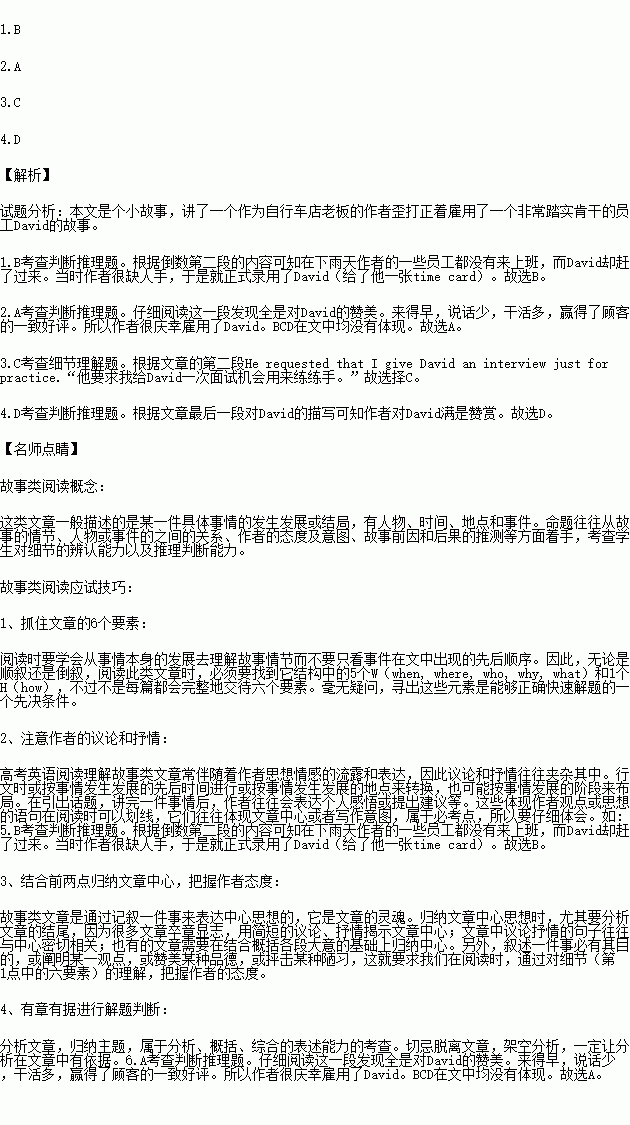题目内容
The associates I hired in my bicycle and lawn mower shop like myself were never perfect; however, they were excellent. Working with them as they improved taught me new ways to show forgiveness, understanding, and patience.
One day the placement officer asked me to interview a young man who was having trouble finding a job. He told me that David was a little shy, did not talk much and was afraid to go on with interviews. He requested that I give David an interview just for practice. He plainly told David that I had no positions open at the time and the interview was just for practice.
When David came in for the interview, he hardly said a word. I told him what we did at the bicycle shop and showed him around. I told David to keep showing up because the number one thing an employer wanted in an associate was dependability.
David was very quiet (he was evaluated as a slow learner in school). Every ten days or so, for weeks after the interview, David walked into the bicycle shop and stood by the front door. He never said a word, just stood by the door.
One day, shortly before Christmas, a large truck came to the shop, packed with 250 new bicycles. It had to be unloaded right away or the driver would leave.
It was raining. Some of my workers (without physical limitations) chose not to brave the weather to get into work, so I was short-handed. It seemed everything was going wrong and on top of it, David came in the front door and just stood there. I looked at him and shouted, “Well, all right! Fill out a time card and help me unload this truck!”
David worked for my bicycle shop for eighteen years. He came to work every day thirty minutes early. He could talk; however, he rarely chose to. He drove my truck and made deliveries. The customers would praise David, saying, “He doesn’t talk, but he really shows you how to operate a lawn mower!”
1.The author finally hired David because________.
A. there were no other workers in the shop then
B. he needed someone who was willing to work then
C. David kept showing up
D. he realized David was dependable
2.We can infer from the last paragraph that_______.
A. the author feels lucky to hire David
B. David has had his character changed through work
C. the author prefers David to be more outgoing
D. some customers just play jokes on David
3.The author gave David an interview to _______.
A. find a person who is reliable
B. find a part-time worker in need
C. give him some practice
D. show sympathy for him
4.The author’s tone in describing David is full of ______.
A. pity B. wonder
C. disappointment D. appreciation

